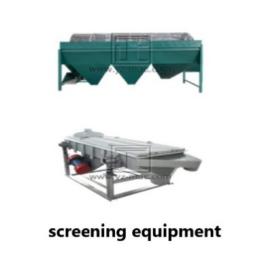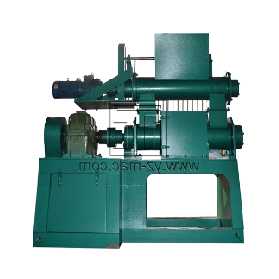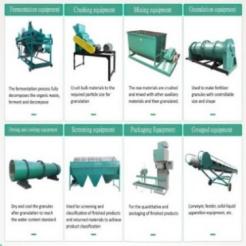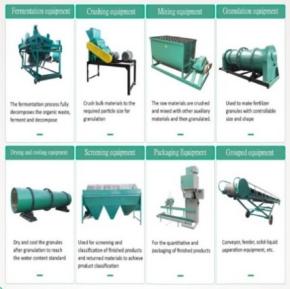Organic fertilizer production line
An organic fertilizer production line is a set of equipment and machinery used to convert organic waste into useful organic fertilizers. The production process typically involves several stages, including:
1.Pre-treatment: This involves collecting and preparing the organic waste materials for processing. This can include shredding, grinding, or chopping the waste to reduce its size and make it easier to handle.
2.Fermentation: The next stage involves fermenting the pre-treated organic waste materials to break them down and convert them into a nutrient-rich compost. This can be done using a variety of techniques, including windrow composting, static pile composting, or vermicomposting.
3.Crushing and mixing: Once the compost is ready, it is crushed and mixed with other ingredients, such as minerals or other organic materials, to create a balanced organic fertilizer mixture.
4.Granulation: The mixture is then processed through a granulator or pellet mill, which forms it into small, uniform pellets or granules.
5.Drying and cooling: The pellets or granules are then dried using a dryer or dehydrator, and cooled to ensure that they are stable and free from moisture.
6.Screening and packing: The final stage involves screening the finished product to remove any undersized or oversized particles, and then packing the organic fertilizer into bags or other containers for storage and distribution.
The exact equipment and machinery used in an organic fertilizer production line will depend on the specific needs and requirements of the production process, as well as factors such as the volume of organic waste being processed and the desired quality of the finished product. Proper maintenance and operation of the equipment is essential to ensure an efficient and successful organic fertilizer production process.








